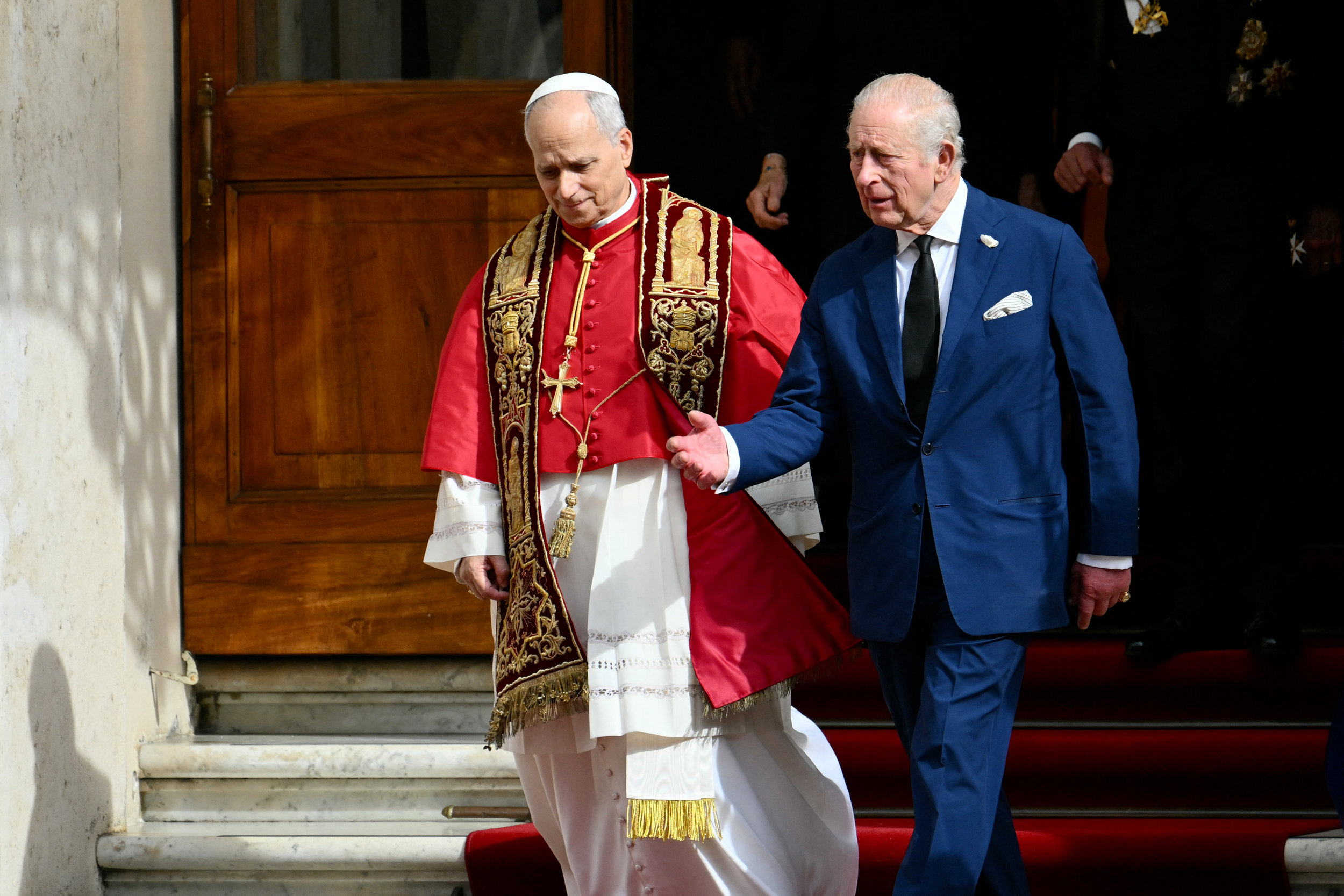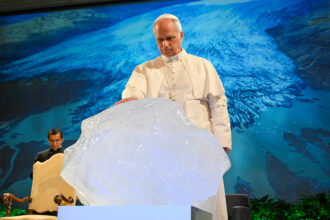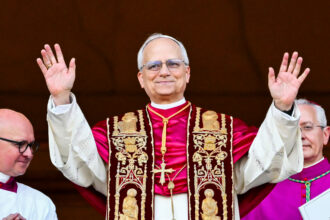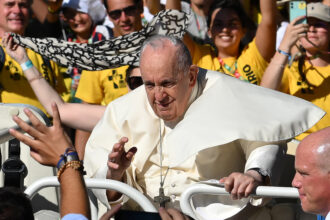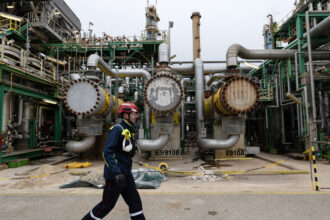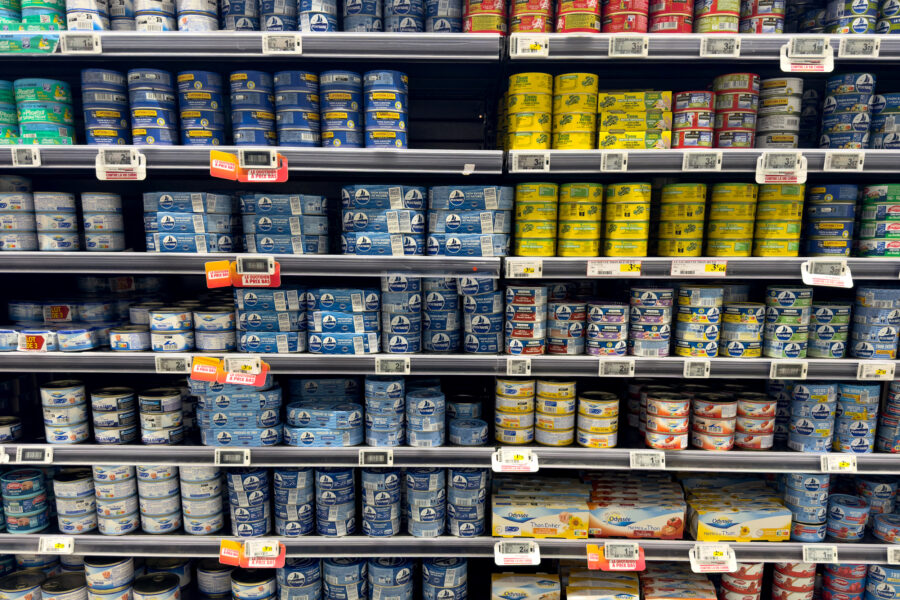From our collaborating partner “Living on Earth,” public radio’s environmental news magazine, an interview by host Steve Curwood with Tony Juniper, the chairman of Natural England, a government conservation agency.
The serene music of the choirs of Windsor Castle, the Sistine Chapel and children from the choir of Saint James Chapel, floated up to the famous ceiling painted by Michelangelo during a historic gathering in October.
It was part of the very first public prayer bringing together King Charles III, supreme governor of the Anglican Church, and Pope Leo XIV, supreme pontiff of the Roman Catholic Church, ending five centuries of separation. This act of unity by these two faith leaders, who are also sovereign heads of state, was embedded in their shared concern for the environment, or creation.
Pope Leo offered a prayer: “God our Father, you have created the heavens and the Earth and made us in your own image. Teach us to see your hand in all your works and your likeness in all your children.”
In 2015, under the leadership of Pope Francis, Pope Leo’s immediate predecessor, the Catholic church issued Laudato Si’ and later Laudate Deum, a pair of encyclicals that spiritually detailed the urgent need and morality of caring for creation.
When King Charles was the Prince of Wales, he wrote “Harmony: A New Way of Looking at Our World.” It was also a moral document steeped in spirituality with its detailed call for sustainability, action on climate change and the protection of nature.
This new unity of the Catholic and Anglican Churches brings together more than a billion people of faith under two leaders with a deep understanding of our imperiled Earth.
Tony Juniper, a coauthor of King Charles’s “Harmony,” is also a former head of Friends of the Earth UK, and now chairs Natural England, a government conservation agency. This interview has been edited for length and clarity.
STEVE CURWOOD: Recently, we had Pope Leo and King Charles III praying in the Sistine Chapel together. How big of a deal was this?
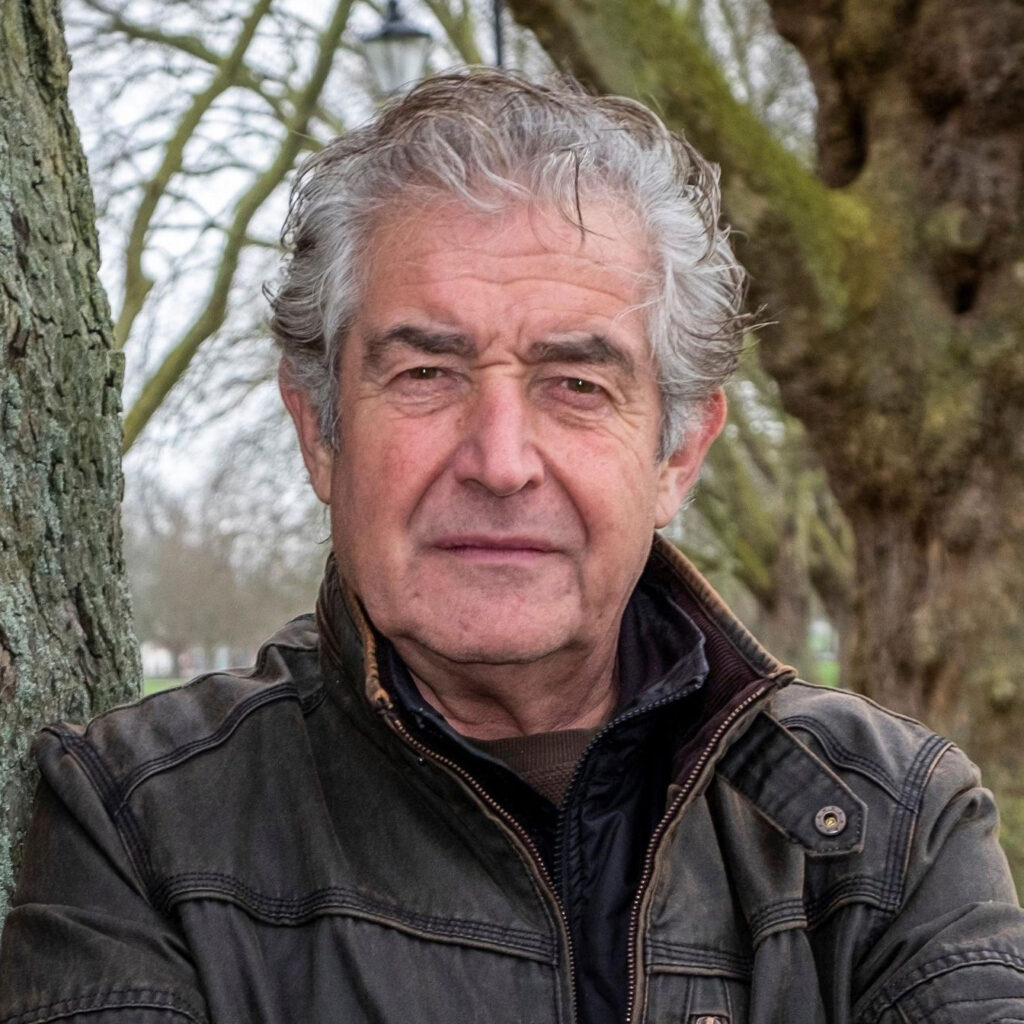
TONY JUNIPER: This is a hugely significant and historic moment. This is the first time we’ve had such a coming together in prayer of the head of the Anglican Church and the leader of the Catholic Church since the Anglican Church was formed when Henry VIII broke away from the Roman church in 1533. [It was] a time of quite considerable upheaval across Europe in what has become known as the Reformation, with other religious movements breaking away from Rome.
CURWOOD: According to the Vatican, during their meeting, Pope Leo and King Charles discussed some of their shared interests, including alleviating poverty and caring for the environment. How important were those subjects for this meeting?
JUNIPER: This focus on ecological concerns and the protection of creation is a shared passion and really a matter of spiritual identity for both of these leaders. That statement of common endeavor on these questions at this time, in particular, when we have this retreat in some places away from the ambition that we need to tackle this twin crisis of nature’s decline and climate change … is very significant indeed.
CURWOOD: You’ve advised the king on the environment and climate for a long time. How has the king advocated for the Earth over those years?
JUNIPER: He has been a consistent, powerful, articulate champion of the natural world and people’s place within it, and it needing to be a more harmonious relationship. He’s been bringing this message to the world now since the early 1970s—so for more than five decades.
There are a variety of subjects that he’s brought to our attention, from the need for sustainable agriculture to the need to protect the tropical rainforests, to the challenges posed by climate change. On all of these issues and many, many others, he has been a vocal champion, but in relation to this meeting with the supreme leader of the Catholic church, you see a coming together, not only of those concerns which sometimes are expressed in scientific terms or which are about policy. This is a deeply spiritual matter for King Charles, and of course, also for the Pope.
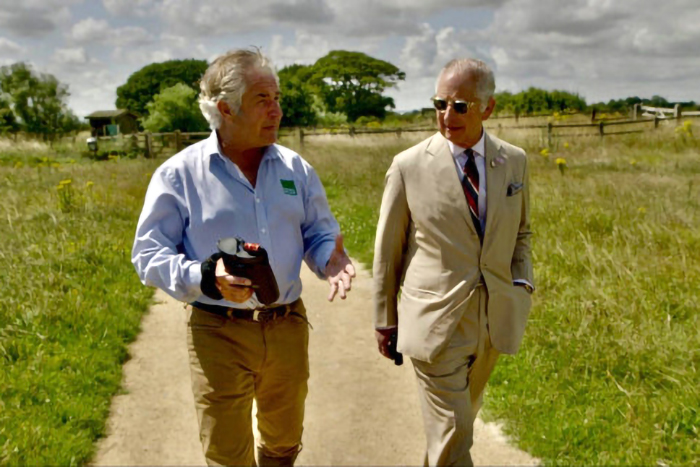
CURWOOD: Pope Francis was known for his encyclicals Laudato Si’, and then Laudate Deum, advocating “Care for Our Common Home.” We’ve seen Pope Leo attending a climate justice conference. To what extent is Pope Leo following in the footsteps of Pope Francis? And to what extent might he be willing to go even further?
JUNIPER: He evidently is following in the path that Pope Francis so powerfully laid out. Whether he will go further, I don’t know. But under the circumstances and the extent to which we are now in the face of a gathering emergency when it comes to climate change, it may well be that he does feel as though he needs to say more and to do more in painting a picture of a really urgent situation that now needs to be taken very much more seriously than is presently the case, certainly in some countries.
CURWOOD: King Charles and Pope Leo are faith leaders. They’re heads of state, but they’re not politicians. What is the power, what is the value, of them coming together on these concerns as faith leaders, beyond the immediate sphere of political action?
JUNIPER: I think the power of this is absolutely enormous. And the reason I say that is because, following many decades of reflection myself, I think it becomes clear that our failure thus far to deal with climate change and to deal with the extinction crises and the degradation of ecosystems, this is not something that we can put down to a lack of information or a lack of awareness.
I think it is down to the extent to which these questions have been seen as scientific or technical issues, or issues that are dealt with in policy. But in fact, if you look at the roots of our difficulties at the moment in being able to rise to the challenges at hand, it’s very much more about our worldview and the extent to which we have been progressively disconnected from nature. Our collective philosophy has become separated from the functioning of our natural world.
The sacred nature of nature was very much there in the teachings of early Christianity. In his book “Harmony,” which was published in 2010, the King speaks about the other religions—Hinduism, Taoism, Islam—and the extent to which all of these, in their early manifestations, had a very strong relationship with the sacred nature of creation, which was seen to be the work of God and thereby something which we should take care of.
For these leaders to be thinking about the joint teachings of the Anglican Church and the Catholic Church in ways that bring creation and God’s work back to center stage is a really, really important part of how we begin on this journey toward a more sustainable and harmonious future.
This story is funded by readers like you.
Our nonprofit newsroom provides award-winning climate coverage free of charge and advertising. We rely on donations from readers like you to keep going. Please donate now to support our work.
Donate NowCURWOOD: Here in the United States, there were many moves made on the policy level to deal with racism. But it was the Black church in the South that really led the movement that changed social attitudes as well as the law. This was something that even a Supreme Court decision hadn’t been able to settle in this country. To what extent do you think having two of these most important leaders of major religions stepping out this way on the question of the environment and care for creation, what chance does that have to make the kind of breakthrough that those Black preachers and then white preachers were able to do on the matter of race in the United States?
JUNIPER: That’s a really good parallel in drawing the distinction between the law and policy on one side and a social movement on the other, which brings about change from the bottom up through people shifting their attitudes and shifting their values. If we are going to shift the world away from its self-centered, consumerist, self-destructive path that it’s on at the moment, we’re going to need to foster much more of a groundswell of change.
For leaders who are beyond politics and who bring a spiritual dimension, and who are able to take the long view because they have their roles for life, that’s a very different offering to society. It’s very interesting that Pope Leo and King Charles see very strong relationships between these questions of social justice and environmental themes.
The encyclical that Pope Francis released before the Paris agreement negotiations in 2015 really brought these matters of justice and ecology very close together, and Pope Leo has reinforced that message since he has become Pope. I know that King Charles very much thinks in terms of linkages between human well-being and ecological challenges, and hopefully those messages by these two leaders … can begin to filter down to inform and inspire the grassroots.
In many ways, they’ve opened the door for what I hope is a reawakening of some of the implicit values in Christianity. The ecological side, perhaps, will begin to be given more weight as a result of this meeting and linked to some of those more familiar struggles about fairness and justice that have been in the church in different ways for a very long time.
CURWOOD: What kind of impact do you think this display of unity will have on the talks at COP30 in Brazil?
JUNIPER: It can only be positive at a time when the world is divided and there’s very visible conflict and much discussion about the need for unity.
If you look back at the impact of Laudato Si’ and the Pope Francis encyclical that was published a couple of months before the negotiations in Paris that led to the Paris Accord, one can only hope that there will be a signaling of the need for people to be working together coming from these faith leaders in a way which will have a visible impact on the negotiations.
But of course, the world is in a very difficult place at the moment, with all sorts of discontinuities of consensus compared to where we were a decade ago. I very much hope that what we see in Brazil is a reaffirming of that consensus, and world leaders depart there with every intention to redouble their efforts back home. But the momentum from the meeting of the Pope and King Charles, taken forward to COP30, hopefully will see us to a [place] when the political ambition and the practical action really ramp up as a result.
About This Story
Perhaps you noticed: This story, like all the news we publish, is free to read. That’s because Inside Climate News is a 501c3 nonprofit organization. We do not charge a subscription fee, lock our news behind a paywall, or clutter our website with ads. We make our news on climate and the environment freely available to you and anyone who wants it.
That’s not all. We also share our news for free with scores of other media organizations around the country. Many of them can’t afford to do environmental journalism of their own. We’ve built bureaus from coast to coast to report local stories, collaborate with local newsrooms and co-publish articles so that this vital work is shared as widely as possible.
Two of us launched ICN in 2007. Six years later we earned a Pulitzer Prize for National Reporting, and now we run the oldest and largest dedicated climate newsroom in the nation. We tell the story in all its complexity. We hold polluters accountable. We expose environmental injustice. We debunk misinformation. We scrutinize solutions and inspire action.
Donations from readers like you fund every aspect of what we do. If you don’t already, will you support our ongoing work, our reporting on the biggest crisis facing our planet, and help us reach even more readers in more places?
Please take a moment to make a tax-deductible donation. Every one of them makes a difference.
Thank you,

